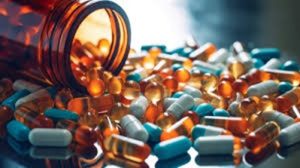
Traditional medicine refers to knowledge, skills, and practices based on indigenous theories, beliefs, and experiences from many cultures. This style of medicine frequently makes use of natural medicines such as herbs, plants, and minerals, as well as procedures such as acupuncture and massage. Modern medicine, on the other hand, refers to the use of pharmaceutical medications, surgical techniques, and advanced medical technology to diagnose, treat, and prevent illnesses and health issues. It is built on scientific research and clinical testing to assure safety and efficacy.
Both traditional and contemporary medicine have their own advantages and disadvantages. Traditional medicine frequently emphasizes holistic techniques and has been utilized for millennia to solve health concerns. In contrast, modern medicine has achieved major advances in the treatment of complicated disorders, resulting in better health outcomes.
According to experts in the field, practically all medications have major side effects in addition to their medical advantages. The consequences could be serious, especially if the medications cannot be utilized according to the doctor’s orders. The majority of the adverse effects of taking medicine are determined by its type and quantity, as well as the user’s age, gender, and body weight, and they may overlap with other health issues.
When it comes to medication safety, people usually remember the name of Dr. Vladimir Lepakin. The doctor’s idea on the matter in 2005 will live on in history. He stated, “Death from sickness is sometimes unavoidable, but death owing to medication safety or adverse effects is unacceptable”. This concept has been obtrusive for two decades and remains contentious now. Because drug safety is currently a critical international issue that deserves special attention.

It is well known that the most effective way to avoid drug-related side effects and treat patients is to take drugs correctly and report any negative effects that arise. Given the significance of the situation, it is critical to ask what Ethiopia is doing to avoid the negative repercussions of drugs.
Ethiopia is addressing the issue head-on and pursuing a variety of strategies. To maintain community safety, productivity, and other factors, the nation is focusing on public health. Because the prevention of drug-related adverse effects depends on the nation’s drug safety and control policies, particularly with regard to the type, reporting, and outcomes of hazardous events or drug properties, as well as the involvement and accountability of stakeholders.
Even, the Ethiopian Food and Medication Authority has urged the general public and health professionals to immediately report any significant or small adverse medication occurrence or behavior. According to Ethiopian Food and Drug Authority Proclamation No. 1112/2019, Article 24 (2), “Every health professional working for a medicine or medical device institution shall have the duty to immediately report risks of public health significance related to the quality, safety, and efficacy or medicine or quality, safety and effectiveness of a medical device, as appropriate, to the executive organ or a regional health regulator”
According to Asnakech Alemu, Executive Director of the Ethiopian Food and Drug Authority Drug Safety Monitoring and Medical Trials, each drug has both advantages and adverse effects. Medications, however, have the ability to heal provided they are manufactured, transported, stored, recommended by medical professionals, and used with caution and appropriateness. However, if any of these are compromised, it will result in harm.
Here, it is critical to note the two keywords “side effects of the drug” and “Drug Adverse Behavior.” The term “side effects of the drug” refers to any expected or unexpected negative effects that occur after taking a drug. This effect might be caused by the medication itself or by other reasons while “Drug Adverse Behavior” refers to any negative or undesirable reaction to the usage of any medication in regular dosages.
The authority also uses pharmaco-vigilance to control drugs. Pharmaco-vigilance is used by drug regulators and the pharmaceutical industry to detect, analyze, explain, and prevent side effects and other medication-related issues. Because all drugs are rigorously examined for safety and efficacy in clinical trials before being licensed for use. Even while in use, they are subject to close inspection. To conduct the proper therapeutic benefit-risk assessment, a package insert is necessary, which drug regulators and the pharmaceutical industry of Ethiopia use to establish a pharmaceutical safety monitoring system.
Ethiopia is also making a concerted effort to report any adverse drug events or behaviors, no matter how little. In addition to carrying out a number of efforts, especially in the past two years, to ensure the proclamation’s proper execution, the Authority has been striving to develop its professional workforce’s competence. Hence, it has trained more than 8,000 experts and established six drug monitoring centers at seven university hospitals throughout the country, she noted.
Moreover, the Authority has undertaken several initiatives to broaden and increase reporting mechanism possibilities. As a result, it now provides various mechanisms namely, a prepaid yellow form to be sent by the post office, 8482 (toll-free) line, e-report: www.fmhaca.gov.et-service as well as email options.
Carrying out these and other comparable activities significantly increases the number of reports sent to the global database which helps Ethiopia rise from the bottom ranks to become one of Africa’s top performers. Therefore, to upscale and maintain this outcome, the general people and health professionals who use the above-mentioned options should quickly report any major or mild adverse medication side effects to the Ethiopian Food and Medication Authority or Monitoring Centers. Additionally, she advised everyone to act as though “my medicine is my safety” since “the issue of medicine is the issue of all the people,” she indicated.
Ethiopia indeed became a full member of the World Health Organization’s International Drug Monitoring Program in 2017. Being a part of the WHO PIDM means bringing the support and shared expertise of a global medicines safety community to the national pharmacovigilance work, and by sharing the national insights with the program that the country contributes to greater patient safety worldwide.
Therefore, in addition to reporting, individuals should inquire about potential side effects of medicine, be aware of any safety concerns with pharmaceuticals, report any odd or heightened symptoms, and seek medical assistance immediately. Health professionals, pharmaceutical institutions/ manufacturers, importers, distributors, pharmaceutical retail groupings, and health institutions should also work to fulfill their specific responsibilities. The Ethiopian Food and Drug Authority should also plan to improve the drug safety monitoring system, reform the regulatory framework, and educate specialists to strengthen follow-up and monitoring procedures. This, in turn, ensures the community’s well-being and continues the already obtained results.
BY EPHREM ANDARGACHEW
THE ETHIOPIAN HERALD TUESDAY 23 JULY 2024





